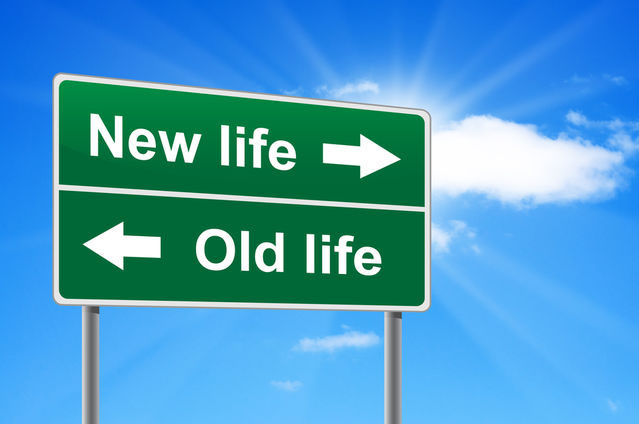Friends
The Best Advice My Therapist Has Ever Given Me
And how it helped me through the hardest year of my life.
Posted August 31, 2018

When I was very young, I broke my leg during a soccer game. That injury required surgery, and that surgery required a three-month recovery period: To my 12-year-old mind, an eternity. The options for getting around were crutches or a wheelchair, so I took to them as soon as possible. My broken leg might keep me away from the soccer field for now, but it wouldn’t get in the way of my other beloved junior-high pastime: going to the mall.
I was so excited to meet my friends there, to do something fun, to do anything other than elevate my leg on a pillow at home or a chair next to my desk at school. My pilgrimage to the Fashion Square Shopping Center, however, didn’t go as I’d expected. I felt eyes on me in all direction as a navigated the busy crowds in a wheel chair. All the simple activities I enjoyed with my friends, browsing through stores, ordering greasy delicious food, settling into a prime people-watching spot to gossip about the latest issue of Seventeen, all of it felt hard and different. I’d been looking forward to reclaiming a small ritual so much that I wasn’t prepared for the oddness of experiencing that ritual under a different set of circumstances. I didn’t stay at the mall very long and I didn’t go back until I had fully recovered.
Of course, what was high drama to my 12-year-old self, I see now as merely the histrionics of a youngster whose many unearned advantages (a healthy and able body, good medical care, access to safe community spaces), and how easily they could be taken away, I’d taken for granted. My discomfort was overwhelming and disorienting. It didn’t take long for me to see that this adolescent, overblown foray into personal hardship was just a tiny, harmless crack in the windshield of my life, and easily repaired.
In comparison, the events that took place in my life three years ago were the equivalent of a crash, a multi-car collision. 2015 was the year my marriage ended and my mother died by suicide. I thought my life was totaled and I felt more broken than ever. The recovery period for this kind of damage really felt like an eternity. Who knew how long or by what means I would finally heal deep wounds that were so internal?
Instead of trying to heal, I started to convince myself that the discomfort and loss I felt was my new permanent reality, and that healing was a grand illusion. I felt unlovable and abandoned. In those dark and fearsome moments of sadness, here are the kinds of things I thought all the time:
I lost my shot at happiness.
I can exist on good memories because that’s all there is now.
No one would want to love a person who is so damaged.
I failed two of the most important people in my life so I don’t deserve to feel joy.
The rest of my life is a punishment for all of my mistakes.
No one wants to be around me; I don’t even want to be around me.
I lived in a fog of negativity and self-doubt. Through it all, my endlessly compassionate support system of friends and family continued to remind me that friendship and love and hope were waiting when I was able to seek them out. From one of those generous souls came a referral to a see a therapist whose services came highly recommended. I booked an appointment.
In the early days of therapy, I performed many commanding soliloquies of my woe, heartbreak and irreparable grief as my therapist quietly and patiently listened, but in one particular session, I remember the deep breath he asked me to take, as if ensuring all of the negative energy had finally been exhausted from my lungs. Then my therapist posed the following question:
“Sarah, when you drive your car, do you spend more time driving forward or driving in reverse?
“Driving forward,” I said. Duh, I thought. Was this a trick question?
My therapist paused, making sure to phrase the next part very carefully.
“Right, because it doesn’t make sense to put your car in reverse and try to get somewhere by relying mostly on your rear-view mirrors to see the way.”
“Ok,” I said, not getting the point.
“But that’s just what you’re doing with your life, Sarah. You’re looking so much at the past, you cannot see clearly what’s ahead, and it’s stopping you from moving forward. Your rear-view mirrors should help to guide you, but if you want to go in the right direction, look forward.”
The wisdom of this advice sank into me like water into parched earth. I could keep depriving myself of joy, of light, of growth, but why? I was putting myself at a disadvantage by focusing on the wrong things, by making the past more important than the present or the future.
The paralyzing loop of regret caused by backward thinking and self-denigration was shortsighted and self-sabotaging. Now I was an adult, dealing with significant losses, but I realized my mindset was more like that 12-year-old navigating the mall with a broken leg: fearful, uncomfortable and hiding out until things got better. What good did feeling sorry for myself do then or now? Nothing.
Use the past to guide me, but always focus forward.
This is the piece of advice I clung to the most during that particularly vulnerable part of my life. It’s also the one I return to anytime I’m faced with brokenness in its many forms. It’s a piece of advice so simple, and yet, for me, it was transformational.
People carry their driver’s license and insurance around to show they can properly drive a car. In much the same way, I carry the words my therapist shared with me that day. They are my emotional license and insurance to be safe and able to get where I want to go. Whenever I lose track of them and feel myself get caught up in thinking about and judging myself on the past, I make the conscious effort to focus my attention forward, on where I’m going, and where I want to be in the future.




